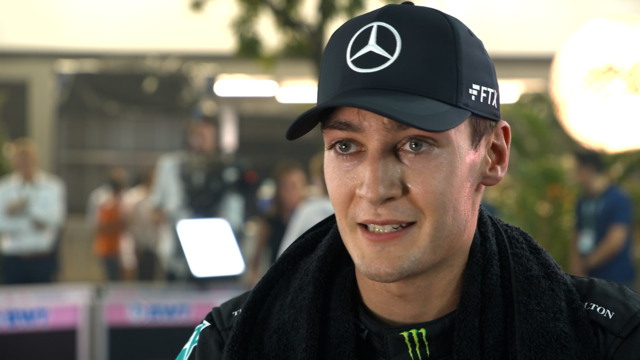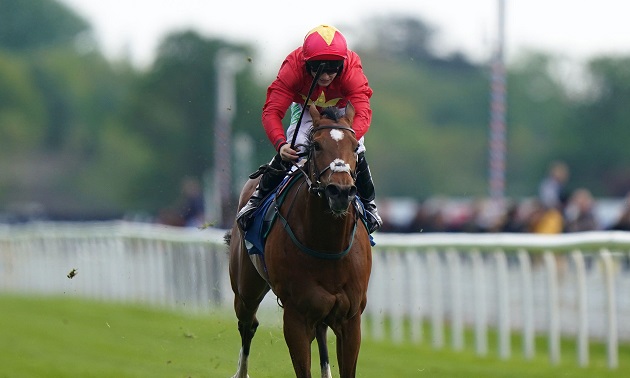[ad_1]
The Los Angeles Rams built their 2021 roster to win the Super Bowl at all costs. They won the Super Bowl. Now they are paying all the costs.
The reigning-champion Rams have a 3-7 record. They have lost four straight games, the last two to the Arizona Cardinals, an N.F.C. West rival, and the New Orleans Saints, teams with a combined 8-14 record. They are essentially eliminated from playoff contention; The New York Times’ N.F.L. playoff calculator gives the Rams just a 3 percent chance of reaching the postseason.
Los Angeles faces Kansas City on Sunday at Arrowhead Stadium in what once looked like a potential Super Bowl preview. Those expectations have been tempered by midseason reality: Early in the week, the Rams were 14.5-point underdogs.
The Rams’ front office made sure that the ring-winning nucleus of quarterback Matthew Stafford, receiver Cooper Kupp, defensive tackle Aaron Donald and cornerback Jalen Ramsey remained intact to start the season. But due to the franchise’s Live Fast/Spend Hard/Die Broke philosophy, however, that nucleus is no longer surrounded by championship-caliber cytoplasm or mitochondria. The overspending and under-drafting that got the franchise its second Super Bowl title is now rotting the Rams’ roster from the roots up.
The trade that brought Stafford to Los Angeles from the Detroit Lions before the 2021 season cost the Rams their 2022 and 2023 first-round picks, plus a 2021 third-round selection. Stafford signed a four-year, $160-million extension in March 2022.
Ramsey, a three-time All-Pro, arrived from the Jacksonville Jaguars midway through the 2019 season in exchange for the Rams’ 2020 and 2021 first-round picks, plus a 2021 fourth-round pick. Ramsey received a five-year, $105-million extension in 2020.
Donald, a three-time defensive player of the year, signed a three-year, $95 million extension in June, silencing speculation that he was mulling retirement. Kupp, the offensive player of the year in 2021, received a three-year, $80-million extension a few days later.
The Rams also traded a 2022 second-round pick to rent the services of the All-Pro pass rusher Von Miller for a few months last year. The team dealt its 2018 first-round pick for receiver Brandin Cooks, now long gone, and traded out of the first round in 2019 as part of a complicated tangle of deals to acquire more late-round picks.
The Rams have not selected within the first 50 picks in an N.F.L. draft since 2017, leaving their roster nearly devoid of rising talent.
Meanwhile, the team’s middle class drifted away in the off-season. The stalwart left tackle Andrew Whitworth retired. Receiver Robert Woods was traded to the Tennessee Titans in a cost-cutting move. Miller left to pursue another championship with the Buffalo Bills.
Odell Beckham Jr. retreated to his Fortress of Solitude to rehab a torn anterior cruciate ligament and ponder his next move. Lesser-known starters, including defensive tackle Sebastian Joseph-Day and guard Austin Corbett, signed with teams that had more money to spend on rank-and-file contributors.
The Rams did find salary cap space to sign receiver Allen Robinson and the six-time All-Pro linebacker Bobby Wagner. Still, the team entered the 2022 season with a handful of big names — a few of them past their primes — supported by dozens of late-round picks, undrafted rookies and castoffs from other teams’ practice squads.
The flaws in the Rams’ 1-percenters-and-minimum-wagers model have been obvious all season. Kupp averaged nine catches for 101.6 yards per game before Week 10, when he injured an ankle, but Robinson proved an inadequate replacement for Woods and Beckham, and no other playmaker has stepped up.
Donald has five sacks, but the Rams are tied for 17th in the N.F.L. in that category with just 22. Ramsey has run hot and cold — the Saints rookie receiver Chris Olave glided past him for a long touchdown on Sunday — leaving the Rams with ordinary-at-best pass coverage. Two blocked punts and a sputtering kick return game underscore the talent void at the bottom of the roster.
Stafford, meanwhile, has been in and out of concussion protocol after taking 29 sacks behind an ever-changing cast of obscure offensive linemen. With Kupp on injured reserve and Stafford ailing, the backup quarterback Bryce Perkins finished the Rams’ Week 11 loss to the Saints running a makeshift Wildcat offense. It was about as far from Super Bowl glory as a team can fall after just nine months.
The situation has gotten so bad that Beckham, once expected to re-sign with the Rams once healthy, has reportedly crossed them off his short list of future employers. Beckham is reportedly more willing to return to the Giants than the Rams. Now that’s a reversal of fortune.
Post Super Bowl-letdowns are not unusual, as teams inevitably face tougher schedules and tighter budgets after winning a championship. No team in history, however, has ever mortgaged its future as extravagantly as the Rams.
According to overthecap.com, all but $6 million of the Rams’ estimated 2023 salary cap budget is already accounted for, with $99 million earmarked for Donald, Kupp, Ramsey and Stafford. With only 37 players under contract beyond this season, the Rams may be forced to cut veterans just to field a 53-man roster next year.
The Fab-but-Fading-Four is scheduled to cost the Rams more than $136 million in 2024. And the Rams’ first-round pick in 2023, which could have netted them a much-needed potential rebuilding block, belongs to the Lions.
The Rams aren’t just enduring a Super Bowl hangover. They have woken up next to a total stranger in a Nevada honeymoon suite with an empty wallet and no sign of their car keys. They’ll be paying the price for their 2021 binge for years.
Banners hang from stadium rafters forever, and a Pyrrhic Super Bowl victory counts just as much as any other kind. The Rams may have no regrets, but their current situation offers a cautionary tale for the copycat franchises tempted to risk their futures on a few splashy trades. Spending lavishly on a few stars and tossing first-round picks around like confetti will not guarantee a championship, but it will guarantee an eventual, prolonged period of dreary austerity.
Moderation remains best in all things, including N.F.L. roster construction.
The Rams’ lesson arrived too late to stop the Denver Broncos from trading for Russell Wilson, but perhaps it will help other teams in the future.
[ad_2]




